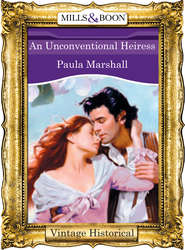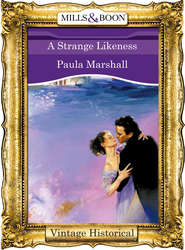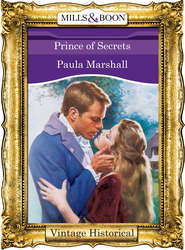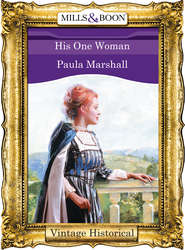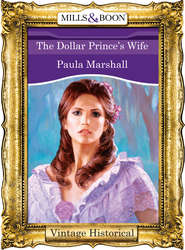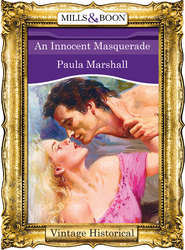По всем вопросам обращайтесь на: info@litportal.ru
(©) 2003-2024.
✖
The Deserted Bride
Настройки чтения
Размер шрифта
Высота строк
Поля
“How now, sirrah?” exclaimed Charles. “Do you know to whom you speak? Show a proper humility towards your betters!”
Roger opened his mouth, ready to inform him that he knew who his betters were, and furthermore, that they included Lady Exford who stood before them, and around whom Drew had now placed a familiar arm. In vain, before he could speak, his lady forestalled him.
“Oh, my groom has a free spirit, sir, as all we dwellers in these parts have. And now I must bid you adieu, for my duties await me. The cows must be fed, and the day wears on.”
Adroitly, she wriggled out of Drew’s half-embrace and, without either Tib or Roger’s assistance, swung athletically on to her horse. Seeing Roger about to speak again, she said smartly, “Silence, man. You must not offend these great ones. And you, too, brother.”
Tib’s answer to that was a grin. He possessed to the full the countryman’s desire to make fools of townies and, by God, these were townies indeed, with their fine clothing and their drawling speech. Particularly the one whose horse had thrown him, who had been so busy making sly suggestions to his mistress.
He and Roger mounted their horses, whilst Drew, seeing his nymph ready to abandon him—rather than simply turn herself into a tree, as Daphne had done when pursued by Apollo—seized the bridle of Bess’s horse, and exclaimed, “Not so fast. I am Drew Exford, and I would know who you are.”
Bess looked down into his perfect face, and, giving him a smile so sweet that it wrenched his heart, she said softly, “But I have little mind to tell you, sir. You must discover it for yourself. Now, let me go, Master Drew Exford, for I have no desire to be behindhand with the day.”
He could not be so ungallant as to insist, especially with Charles’s amused eyes on him, and the snickers of her two companions, who were enjoying his discomfiture plainly audible. There was nothing for it but to stand back and watch her tap her whip smartly on her horse’s flank and ride off, the two men behind her, leaving Drew to gaze after her.
“Was she real, or are we dreaming?” he said, turning to Charles, who had dismounted and was staring at him as he added energetically, “Come, let us follow them.”
Only for Charles to place an urgent hand on his sleeve. “Nay, Drew. You have had a fall, the day grows old and we must ready ourselves to be at Atherington on the morrow. You do intend to visit your wife, do you not? Hardly the perfect start to your visit, to seduce one of her tenant’s daughters before you even bid her good day.”
Drew nodded his head reluctantly. “I suppose that you have the right of it. But have you ever seen such a divine face and form? Dress her in fine clothing and she would have half London at her feet.”
“Now, Drew, you do surprise me,” drawled Charles as the pair of them remounted. “I had thought that your wish would be for her to have no clothes on at all!”
Chapter Three
“So, he is here, at last,” twittered aunt Hamilton, shaken out of her usual calm when a courier arrived with m’lord Exford’s letter for her husband, Sir Braithwaite Hamilton, informing him that he was lying at an inn nearby and proposed to arrive at Atherington House shortly after noon. He would be grateful if Sir Braithwaite would apprise his niece, Lady Exford, of the news, and also make Atherington House ready to entertain his train.
She continued excitedly, half-expecting her niece to refuse to do any such thing, “And when you meet him you must be dressed in something more appropriate to your station than that old grey kirtle you have seen fit to wear today.”
“Indeed, indeed,” agreed Bess equably and surprisingly. She had every intention of being as splendidly dressed as possible to receive her husband, if only to disconcert him the more when he realised who the nymph of Charnwood Forest really was.
“Does he not know that my poor husband has been unfit to arrange anything these past five years?” aunt Hamilton continued, still agitated, and quite unaware that Bess had kept this interesting fact from her husband lest he send a steward—or, worse still, arrive himself—to manage Atherington’s affairs. He was quite unaware that Bess had been in charge since Sir Braithwaite had lost his wits after his accident—another surprise for him, and perhaps not a welcome one, was Bess’s rueful thought.
He was sure to demand that some man should replace her, even though Bess had managed Atherington lands more efficiently than her uncle. In that she was similar to another Bess, she of Hardwick, who was also Countess of Shrewsbury, and who ruled her husband as well as their joint estates.
“He has probably forgotten,” prevaricated Bess, who had long developed a neat line in such half-truths. “He has such a busy life about the court—and elsewhere,” she ended firmly, although she had not the smallest notion what her husband had been doing during the long years of his absence.
“Nevertheless…” Her aunt frowned, prepared to say more had not a well-known glint in Bess’s eye silenced her. She decided to concentrate instead on arranging for her usually wild niece to look, for once, like the great lady which she was by birth and marriage.
“And you will receive him in the Great Hall as soon as he arrives, I suppose?”
“Nay.” Bess shook her head. “I am sure that he and his train will wish to change their clothing and order themselves properly after their long journey. Only after that shall I welcome him—and then in the Great Parlour. I have given Gilbert orders to lay out a meal in the Hall for a score of us. Lord Exford—” she would not say “my husband” “—writes that he is bringing six gentlemen of his household with him, as well as his Steward, and Treasurer, and Clerk Comptroller—to inspect our finances, no doubt. His servants, of whom there are a dozen, may eat in the kitchens. It is fortunate that since he wrote that he might visit us I have arranged for a greater supply of provisions than we usually carry. I suspected that he might arrive without warning.”
Aunt Hamilton said, almost as though regretting it, “You are always beforehand with your arrangements, my dear.”
“Oh, I have a good staff who only cross me when they are sure I am wrong,” returned Bess, who had spent the morning with her Council discussing how to ensure that m’lord Exford’s visit was a success. They were all men, so Bess’s lady-in-waiting, Kate Stowe, always sat just behind her to maintain the proprieties.
At first, when Sir Braithwaite had become incompetent, they had been wary of Bess taking his place, but she had soon shown how eager she was to learn and, despite her lack of years, had shown more commonsense than Sir Braithwaite had ever displayed—even before he had lost his wits. Three years ago she had insisted on reducing her household from nearly three hundred people to little more than a hundred and fifty, arguing correctly that Atherington was beginning to run into needless debt by providing for so many unnecessary mouths.
“But you have a station to keep up, my child,” aunt Hamilton had wailed. “We great ones are judged by the number of those we gather around us.”
“Nothing to that,” Bess had replied firmly, “if by doing so we run headlong into ruin. If we continue as we are, we shall eventually arrive at a day when we shall lose our lands, and scarcely be able to employ anyone. How should that profit Atherington?”
Nor did her household know that she had failed to inform her husband of Sir Braithwaite’s misfortune, for she had quietly destroyed the letters of her Clerk comptroller telling of it, and substituted others with the documents and accounts which were sent south.
And now, at last, the day of reckoning was here, and to the half-fearful excitement of meeting her husband in her proper person was added that of facing both him and her staff when they discovered her deceptions. Unless, of course, she managed to conceal them. How, she could not imagine.
No one could have guessed at the contrary emotions which were tearing Bess apart. She seemed, indeed, to be even more in command than usual when she spent her early morning with her Council. And this unnatural calm stayed with her during a late-morning session with aunt Hamilton and Kate Stowe—as well as sundry tiring maids—being dressed to receive the Exford retinue in proper style.
Usually Bess greeted being turned out “like a maypole in spring”, as she always put it, with great impatience. Today, however, aunt Hamilton was both surprised and gratified by her willingness to please, and her readiness to wear the magnificent Atherington necklace which her niece had always dismissed as too barbaric and heavy, even for formal use. Perhaps it was the prospect of meeting her husband which was causing her to behave with such uncharacteristic meekness.
If so, aunt Hamilton could only be pleased that Bess was at last going to behave like the kind of conventional young woman whom she had always wished her to be.
She was not to know that her niece was gleefully preparing, not to be counselled and corrected by her husband, but rather to wrongfoot him with the knowledge of exactly who it was that he had been so eager to seduce on the previous day!
Contrary emotions were also tearing at Drew Exford. The flippancy of his cousin Charles—which he usually encouraged to lighten the burden of his great station—grated badly on him the nearer he approached the time to meet his long-deserted wife.
Of what like was she now, m’lady Exford? Was she still as plain as the child he had abandoned? He prayed not, but he feared so. But this time he would be kind, however ugly she might prove to be.
He remembered Philip Sidney saying of a plain woman, “She does not deserve our mockery, but our pity. For we see her but occasionally, whilst she has to live with her looks forever. Always remember, Drew, that she has a heart and mind as tender as that of the most beautous she. Nay, more so, for she lives not to torment our sex by using her looks as a weapon, but practises instead those other female virtues which we prize not in youth, but value in age. Loving kindness, charity and mercy—and the ability to order a good household!”
Easy enough to say, perhaps, but hard to remember when a young man’s blood is young and hot. Perhaps here, Drew hoped, in leafy Leicestershire, away from the temptations of London and the court, he might find in his wife those virtues of which Philip had spoken.
“You’re quiet today, Drew,” Charles observed as he drew level with his cousin who had ridden ahead of his small procession. “Thinking of your bride, no doubt, who probably does not resemble the Arcadian shepherdess of yestermorn very much.”
This was too near to the bone for Drew to stomach. He put spurs to his horse and left Charles and the rest behind, and stayed ahead of them until Atherington House was reached.
And a noble pile it was. Square and built of red brick, a small tower had been added on each corner to remind the commonalty that although a castle no longer stood on high to menace them, power and might in this part of Leicestershire still belonged to the Turvilles.
There was a formal garden on one side of the house, and stables at the back. It had been built around a central quadrangle filled with a lawn which was bordered by beds of herbs and simples. An arcaded walk had been added to one wall. A small chapel stood at a little distance from the main building.
But all this was yet to be discovered by the visitors. Drew waited for his people to catch him up, whereupon he sent the most senior of his pages before him as a herald to inform Atherington that its master had arrived. But even before the page reached the main entrance with its double doors of the stoutest oak, they were flung open and a crowd of servants appeared, opening up an avenue for Drew and his gentlemen to walk through when they had dismounted. A burly Steward, carrying a white staff of office, came forward to meet them.
He bowed low to Drew and his company. “My mistress, your good lady, bids me greet you, my noble lord. Knowing that your journey from London has been both long and hard, she has arranged to meet you, m’lord, and your gentlemen, in the Great Parlour, after you have had the ordering of yourselves. I most humbly beg you to follow me to your quarters.” He bowed again.
Drew heard Charles give a stifled laugh. Himself, he wanted to fling the man on one side and demand to be taken immediately to his wife. His self-control and temper hung in the balance—and, what was more, Charles and the others knew it. Self-control won. After all, what matter it that he met his wife early or late, when as soon as they did meet he would make it his purpose to show her that he was the master at Atherington.
“I thought,” murmured Charles in his ear, “that you told me that your wife’s uncle was Regent here for you. But yon popinjay made no mention of him. Would you wish me to remind him of who rules at Atherington?”
Charles was merely saying aloud what Drew was thinking. Nevertheless he shook his head. “No, I do not wish my own rule to begin in dissension and unpleasantness. Later we will arrange things to my liking. For the present we go with the tide.”
Again, easy to say, but hard to do.
It was, therefore, some little time before Drew and his gentlemen were escorted by the same Steward from their quarters in one of the towers down the winding staircase towards the entrance hall and the double doors which led first to the Great Hall. From thence they processed to the Great Parlour—the room where the owners of Atherington took their private leisure. These days the Great Hall was reserved for more formal functions.
Drew had dressed himself magnificently in cloth of the deepest silver with a hint of cerulean blue in it. The colours emphasised—as they were intended to do—his blonde beauty. His doublet had the new peasecod belly. His breeches were padded with horsehair, and his long stockings of the palest cream were visible until just above his knee where they were supported by garters made of fine blue and silver brocade.
His ruff was also of the newest fashion, being oval in shape, rather than round, and was narrow, not deep. It was held up behind his head by an invisible fine wire frame. His leather shoes had long tongues and small cork heels. A sapphire ring decorated one shapely hand; a small gold locket hung around his neck, its case adorned by a large diamond.






